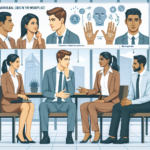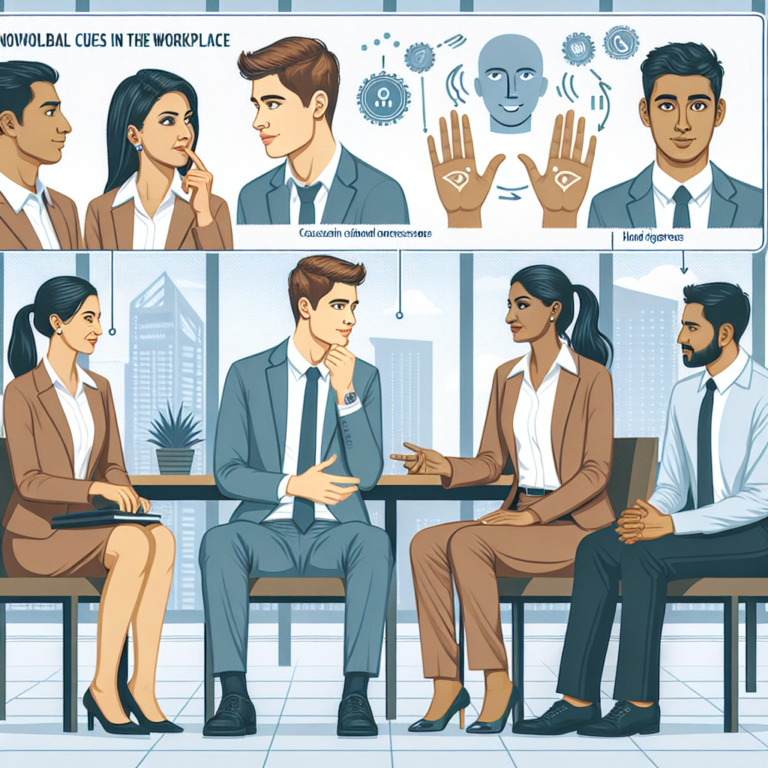
Introduction
In today’s fast-paced and often chaotic business environment, effective leadership is more crucial than ever. While extroverted personalities frequently steal the spotlight, it is increasingly clear that introverts possess unique qualities that make them exceptional leaders. This article delves deep into “Why Introverts Make Great Leaders: Embracing Thoughtful Decision-Making.” By embracing a reflective approach and fostering deeper connections, these leaders can inspire their teams in ways that are both impactful and transformative.
Understanding Introversion: The Quiet Power
The Nature of Introversion
Introversion is often misunderstood as mere shyness or social anxiety. However, a true introvert gains energy from solitude and prefers to process thoughts internally. According to a study by the American Psychological Association, approximately 30-50% of the population is introverted. This sizeable demographic often brings a unique perspective to leadership roles.
Key Traits of Introverted Leaders
Thoughtfulness:
Introverts tend to think before they speak. This reflects an ability to analyze situations critically, which bolsters thoughtful decision-making.Active Listening:
Introverted leaders excel at listening, enabling them to understand team dynamics and employee needs better.Empathy:
They often forge strong relationships, fostering loyalty and trust within their teams.- Visionary Thinking:
Introverts frequently embark on deep exploration of ideas, resulting in innovative solutions and strategies.
Case Study: Satya Nadella at Microsoft
Satya Nadella took the helm at Microsoft in 2014 and is a quintessential example of an introverted leader. Under his guidance, Microsoft shifted its culture towards collaboration, open communication, and empathy—principles that resonated deeply with the workforce.
Analysis
Nadella’s thoughtful decision-making style led to the company’s resurgence and a 150% increase in stock value, illustrating the power of embracing introverted traits in leadership.
| Leadership Trait | Satya Nadella’s Approach |
|---|---|
| Thoughtfulness | Prioritizes empathy in decision-making |
| Active Listening | Encourages team feedback |
| Visionary Thinking | Focuses on innovation and growth |
The Value of Thoughtful Decision-Making
Slower, More Deliberate Process
Introverted leaders may take longer to arrive at decisions than their extroverted counterparts, leading teams to perceive them as indecisive. However, this slow and steady approach often yields more substantial and long-lasting outcomes.
Emotional Intelligence
Research shows that leaders with high emotional intelligence make better decisions. Introverts excel in this area due to their natural inclination toward empathy and social understanding.
The Power of Relationships
Building Trust with Team Members
Introverted leaders tend to build strong, trust-based relationships with their teams. This fosters a culture where team members feel valued and engaged, directly contributing to higher productivity.
Encouraging Open Dialogue
By creating safe spaces for dialogue, introverted leaders facilitate honest communication channels. Employees feel empowered to voice their ideas and concerns, which often leads to innovative solutions.
Case Study: Howard Schultz at Starbucks
Howard Schultz transformed Starbucks into a global phenomenon. His leadership style emphasizes the importance of employee well-being and collaboration.
Analysis
Under Schultz, Starbucks introduced extensive employee benefits and training programs, resulting in lower employee turnover and higher customer satisfaction. When introverts lead with care and thoughtfulness, the results speak for themselves.
| Leadership Initiative | Impact |
|---|---|
| Employee Benefits Program | Reduced turnover by 65% |
| Training and Development | 25% increase in customer satisfaction |
Navigating Crisis Situations
Calmness Under Pressure
Introverted leaders are often more composed in high-pressure situations. This ability to maintain calmness and clarity can guide teams through crises effectively.
Strategic Risk Assessment
When faced with challenges, introverts take the time to analyze all angles before making decisions—an invaluable trait during times of uncertainty.
The Culture Shift: From Leadership Stereotypes to Inclusivity
Challenging the Norm
The corporate landscape has long favored extroverted traits, emphasizing charisma and assertiveness. However, the rise of introverted leaders is challenging outdated stereotypes, proving that diversity in leadership styles fosters richer organizational cultures.
Implementing Change
As businesses evolve, leaders must adopt inclusive practices that encourage different leadership styles, including those aligned with introversion. Companies benefit from tapping into the strengths of all personality types.
Conclusion
Understanding “Why Introverts Make Great Leaders: Embracing Thoughtful Decision-Making” unveils the profound impact such leaders can have on organizations. By leveraging their reflective nature, emotional intelligence, and relationship-building skills, introverts are redefining leadership in an increasingly complex world.
Actionable Insights
- Encourage Diverse Leadership Styles: Emphasize the importance of both introverted and extroverted leaders within your organization.
- Foster Psychological Safety: Create a culture where team members feel comfortable sharing their ideas and feedback.
- Promote Thoughtful Decision-Making: Value a slower, more deliberate decision-making process that prioritizes team input and emotional intelligence.
As workplaces evolve, the value of introverted leaders will only increase, igniting a powerful conversation about the diversity of thought in leadership.
FAQs
1. Are all introverts suited for leadership roles?
While many introverts possess leadership qualities, suitability also depends on experience, skills, and the specific leadership context.
2. How can an introvert enhance their leadership skills?
Introverts can work on interpersonal communication, public speaking, and practicing decision-making in group settings to enhance their leadership skills.
3. Do introverted leaders face challenges?
Yes, introverted leaders may struggle with visibility and assertiveness in environments that favor extroverted traits.
4. How do introverted leaders make decisions differently?
Introverted leaders often take more time to collect information, reflect on it, and consult with their teams before making decisions.
5. Is it possible for introverts to adopt extroverted traits when needed?
Absolutely! Many introverts develop skills to engage dynamically in social situations when necessary, allowing them to balance their natural inclinations with the demands of their roles.
By embracing the strengths of introverted leaders, organizations can harness thoughtful decision-making to achieve sustainable success.













